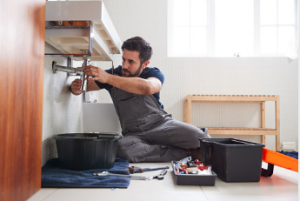Plumbing is the job of a professional who fixes pipes. The pipe material was initially lead, chosen for its rust-resistant qualities. The Latin name for lead is pb, the abbreviation for the element in the periodic table. Plumbing is one of the most common forms of home repair, and plumbers are a great way to get these pipes fixed. Lead was one of the oldest materials used, and plumbers have been fixing pipes since ancient times.
Water supply plumbers
 Water supply plumbers Gawler are professionals who install and repair water systems in buildings. This plumber installs water tanks and sanitation systems and repairs pipes and fittings. This type of plumber also repairs or installs water heaters. If you have water heater problems, you need a water supply plumber to fix the problem. Listed below are some of the responsibilities of a water supply plumber. To learn more about this type of plumber, read on!
Water supply plumbers Gawler are professionals who install and repair water systems in buildings. This plumber installs water tanks and sanitation systems and repairs pipes and fittings. This type of plumber also repairs or installs water heaters. If you have water heater problems, you need a water supply plumber to fix the problem. Listed below are some of the responsibilities of a water supply plumber. To learn more about this type of plumber, read on!
A water supply plumber works with water systems throughout residential spaces. They install water tanks, pipes, and kitchen sinks. They also unclog sinks and sanitary drains. Other jobs of this type of plumber include unblocking bathroom and kitchen drains. Some plumbers work in tight spaces and residential buildings, so it is essential to be physically fit to perform this work. In addition, they may be called upon to clean if clogged or blocked pipes are in your home.
Plumbers specialising in water systems must know the proper techniques and skills to protect your building’s water supply. Additionally, plumbers must be able to weld appropriately to ensure that no damage occurs during the process. In some cases, you may need a new water well. A water supply plumber can determine whether you need a new well or whether your existing one is still working.
Sanitary plumbers
Sanitary plumbers Gawler have licensed professionals who work with sanitary sewers. These professionals are responsible for fixing any problems related to clean plumbing systems, including clogged sewers. Back up of sewage in sanitary sewer systems is a severe issue. It can happen after heavy rains or snowmelt, and it’s hazardous to deal with. Sanitary plumbers are trained to solve such problems promptly.
Sanitary plumbers are trained to work on sewage and drainage systems, unclog toilets, and install water heating systems. They are the most commonly contracted plumbers. Meanwhile, residential plumbers deal with plumbing problems in individual homes and small buildings. These professionals are often called upon to fix blocked sinks and bathtubs, unclog kitchen drains, and clogged toilets. Sanitary plumbers are highly specialised and specialise in their field.
The most common job for sanitary plumbers is to unclog drains. They also install bathroom pipes. Other jobs they may perform include fitting water heating systems. Sanitary plumbers need to undergo specific training to become licensed. Many small plumbing companies focus on residential plumbing. This title applies to any plumbing, from clogs to leaks. These professionals have extensive plumbing knowledge and are equipped with the proper tools and training to complete the job correctly.
Master plumbers
A master plumber is a licensed professional in the plumbing field to install and repair pipes and water systems. They are responsible for following building codes and blueprints to ensure that all plumbing work is done safely and correctly. This job also requires the master plumber to be able to read blueprints and calculate plumbing costs. In addition, plumbing requires a solid working knowledge of mathematics and the functions of different tools, systems, and components. Fortunately, there are many career opportunities for master plumbers.
To become a master plumber, a person must have an associate’s degree in plumbing and have completed a training program at a vocational school. Most plumbers begin their career as apprentices who train for four or five years and gain valuable experience. After completing an apprenticeship, they are allowed to practice independently. However, they must also complete an examination to earn their state license. This exam is written and tests the plumber’s general knowledge and understanding of local plumbing codes.
